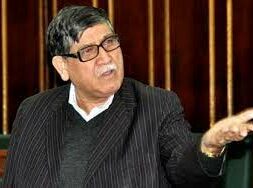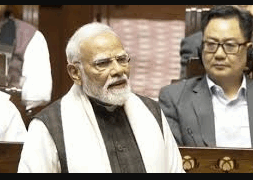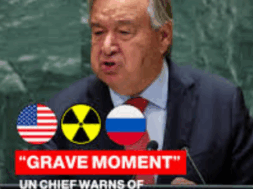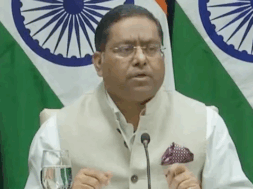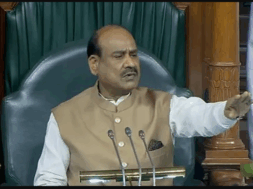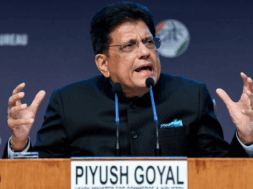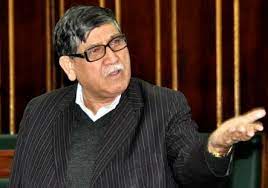
SC Directs Akbar Lone to File Affidavit Owing Allegiance to Constitution of India
Manas Dasgupta
NEW DELHI, Sept 4: The Supreme Court on Monday asked the National Conference leader Mohammad Akbar Lone, the lead petitioner challenging the abrogation of Article 370, to swear allegiance to the Constitution of India in writing as the Centre and some other respondents accused him of having raised pro-Pakistan slogan inside the Jammu and Kashmir assembly in 2018.
Appearing before the Constitution Bench headed by Chief Justice of India DY Chandrachud, Solicitor General Tushar Mehta, for the Union government, demanded that Lone be made to file an affidavit pledging his allegiance to the Constitution of India.
The Centre and other respondents accused Lone of raising slogans, including ‘Pakistan Zindabad’ in the Jammu and Kashmir Assembly in 2018 and was still feeling remorseless about it. Lone was asked to file an affidavit on Tuesday Mehta levelled the accusation against him. The Supreme Court has ordered Lone to file an affidavit that he owes allegiance to the Constitution.
“We want to have it from Akbar Lone that he unconditionally accepts that Jammu and Kashmir is an integral part of India and that he abides by and owes allegiance to the Constitution of India,” the five-judge bench headed by Chandrachud said. The bench, which also included Justices Sanjay Kishan Kaul, Sanjiv Khanna, BR Gavai, and Surya Kant, said it would seek a statement from Lone when it is his turn to present his rejoinder arguments.
“These statements coming from senior leaders have their own effect. If no apology is given, it would encourage others. This will have an effect on steps taken to bring normalcy in Jammu and Kashmir,” Tushar Mehta said. Mehta also said Lone must say he opposed secessionist activities and terrorism by Pakistan in Jammu and Kashmir.
Senior lawyer Kapil Sibal told the judges that Lone would file the affidavit by Tuesday and that if he didn’t, he would no longer represent him. “He is an MP of Lok Sabha. He is a citizen of India and sworn to his office by the Constitution. He accepts the sovereignty of India,” Sibal said.
Mehta had earlier urged the Supreme Court to act, saying if nothing was done, it might encourage others and “the efforts of the nation to bring normalcy, which has been substantially successful, will be affected.” Mehta said Lone was no ordinary person but currently a sitting Member of Parliament. “Such comments coming from responsible leaders have its own context and seriousness,” the law officer submitted.
The Solicitor General said Lone would have been the lead petitioner following the withdrawal of Shah Faesal, had the court not given the generic title ‘In Re Article 370 of the Constitution’ to the case. “He [Lone] should file an affidavit saying that ‘I owe allegiance to the Constitution of India because I am before the highest court of the country’. He must say ‘I strongly oppose terrorism and secession by Pakistan in Jammu and Kashmir’… He must come on record,” Mehta said in an impassioned manner.
Appearing for other respondents supporting the Centre’s move to repeal Article 370, senior advocates Rakesh Dwivedi and Mahesh Jethmalani said “if he is invoking the Constitution of India here, he cannot stand outside the Constitution of India… It is a matter of propriety.” Mehta even said the court should “take up” the submissions of Lone only if he “apologised.”
Chief Justice Chandrachud said the judges had seen these reports in the newspapers. “We also read the newspapers. Lot of things in affidavits are pre-empted by giving them in newspapers… We will see what they (Lone’s lawyers) have to say about this issue in their rejoinder,” Chief Justice Chandrachud addressed the government and other respondents.
Sibal, in the opening days of the challenge to the repeal of Article 370, argued that the President of India had no blanket powers to silence the will of the people of J&K through a series of executive acts which abolished the Statehood of J&K and abrogated Article 370. “There has been no representative democracy in J&K in the past five years… In the guise of restoring democracy, we have decimated democracy. The State of J&K historically represented a unique relationship unlike princely states which integrated into the Union,” he had asked the court.
